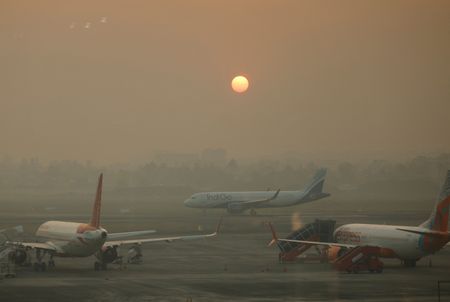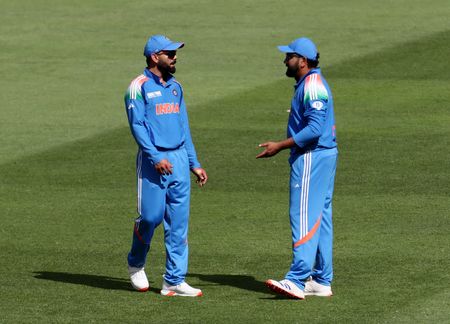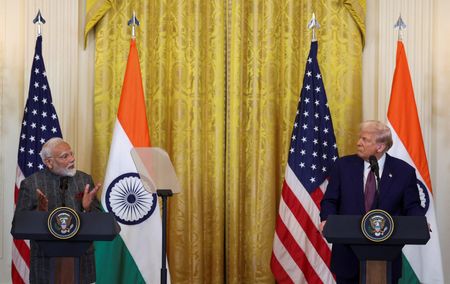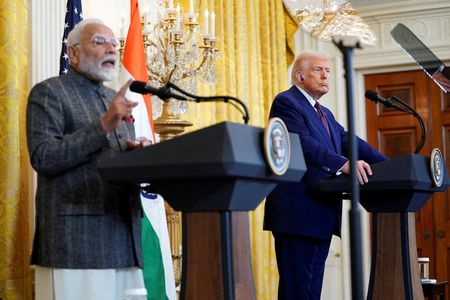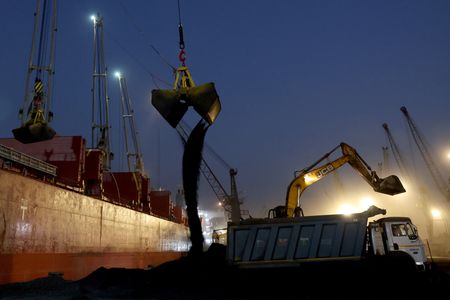By Abhijith Ganapavaram
NEW DELHI (Reuters) -A group of global lessors has asked India to reconsider draft aviation rules they say complicate the task of reclaiming aircraft from distressed carriers by requiring lessors to first clear airline taxes and salaries, sources said.
India is a key market for lessors as hundreds of new planes are on order by the likes of Air India and IndiGo. About 80% of commercial passenger jets in the country are leased rather than owned, well above the global average of 58%.
The bankruptcy of Indian airline Go First in 2023 left lessors scrambling to reclaim planes as they negotiated its complex laws, leading some to call India a risky jurisdiction.
That prompted New Delhi’s new law this year to ease repossession.
But the draft rules released in September to give effect to the law say wages to employees and government taxes owed by a distressed airline “shall have priority and would need to be cleared” by lessors before they can take their planes back.
The rules are impractical and could delay plane repossessions, the Aviation Working Group (AWG), has told India’s civil aviation ministry in a letter, said three industry sources with knowledge of the confidential communication.
The AWG represents leasing giants such as AerCap and Avolon, as well as planemakers Boeing and Airbus.
The ministry did not respond to Reuters queries. The sources sought anonymity as AWG’s letter is confidential.
INDIAN RULES WORRY GLOBAL LESSORS
The AWG has asked the ministry to reconsider the rules, which were open for public consultation until October 17 and have yet to be finalised.
“It’s like we took two steps ahead with the law, and then we took four steps back with the rules … Some dues being sought are not even related to the aircraft,” said Mansi Singh, an aviation lawyer with BTG Advaya, which advises lessors.
The new draft rules state no reason why lessors are liable for other airline dues before they can recover their planes.
But the demise of Kingfisher Airlines in 2012 and Jet Airways in 2019 left millions of dollars in unpaid dues owed to government bodies and scores of employees without salaries.
Among the debts the draft rules require lessors to pay before taking possession of their planes are items such as unpaid wages of airline employees, airport operators’ charges, including landing charges, and even fuel charges.
DISCUSSIONS SET TO TAKE PLACE
One of the sources said lessors were amenable to paying some levies concerning their planes for 30 days to 60 days before they take them back, but worried about being held responsible overall for all the past charges.
Jeffrey Wool, the secretary general of AWG, confirmed it had submitted detailed comments to the government on the draft rules which “would materially benefit the Indian aviation sector”, but did not comment on the lessors’ concerns.
Prime Minister Narendra Modi has faced many challenges in his quest to turn India into an aviation hub.
In 2023, when Go First went bankrupt, lessors complained about not getting back their planes in time, with one even claiming that aircraft “were robbed” of some components.
AWG representatives and ministry officials are set to hold talks on the new rules in coming weeks, one source said. Aviation lawyer Ravi Nath, AWG’s coordinator in India, declined to comment.
(Reporting by Abhijith Ganapavaram; Editing by Aditya Kalra and Clarence Fernandez)

